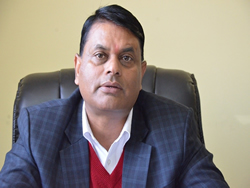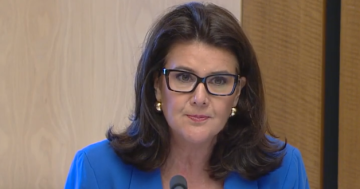 Senior Nepalese Public Servant, Yadav Koirala (pictured) must feel he is on a roller-coaster ride after he was transferred to the Ministry of Federal Affairs and Local Development.
Senior Nepalese Public Servant, Yadav Koirala (pictured) must feel he is on a roller-coaster ride after he was transferred to the Ministry of Federal Affairs and Local Development.
On the face of it, this was not unusual. The Government has a policy of transferring Secretaries on a regular basis.
However, in Mr Koirala’s case, this was his fifth transfer in just two years.
Former bureaucrats and experts on administrative affairs said that while the Government could shuffle Public Servants when it wanted to, senior staff, like Secretaries, should be allowed to serve for some time before they were sent from one Ministry to another so as to allow the bureaucracy to function smoothly.
Kedar Bahadur Adhikari, who recently retired as Secretary of the Ministry of Culture, Tourism and Civil Aviation, said for good results a Secretary should be given at least two years to serve at a Ministry or State entity.
He had served in five different Ministries in his last five years as a Secretary.
Frequent transferring of top bureaucrats has long been the bane of Nepal’s bureaucracy.
It has suffered because Nepal has always struggled to have an elected Government complete its full five-year term.
With new Governments formed every nine months on average, frequent transfers of Secretaries have become the order of the day.
However, the current Government, led by K.P. Sharma Oli, has brought some stability, having been in office for two-and-a-half years.
There is no official data on how many changes or transfers have been made at the top level of bureaucracy since Mr Oli became Prime Minister.
One Secretary, however, said there had been dozens of reshuffles of top bureaucrats in this period.
“This makes the bureaucracy very unstable and vulnerable,” the Secretary said on the condition of anonymity because he feared retribution.
Research by journalists shows that only two Secretaries have been serving in the same Ministries, Finance and Defence, since the Oli Government came to power while most others have been shuffled around at least three or four times.
Kathmandu, 19 October 2020











